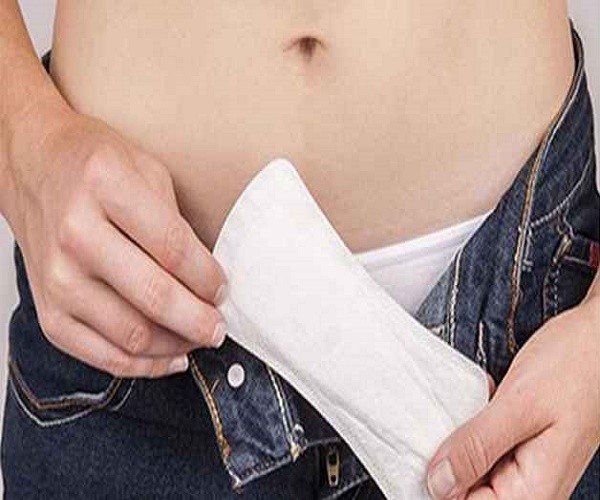The place sanitary napkins have in the collective male consciousness in India is a bit like potato’s in biryani – everyone knows about them, but very few care.
It’s understandable to some extent, after all, men have no practical use for a sanitary pad. However, dealing with disinterest is one thing, but dealing with taboo is quite something else. Thanks to the rampant sexualisation of women’s bodies in our culture, menstruation and sanitary pads are not just things men don’t care much about, they are things that make most of them very, very uncomfortable. And since they still largely dictate norms of social interaction in our country, their ‘discomfort’ becomes a hurdle in a woman’s right to menstrual hygiene and wellness in many situations.
Without getting into its cinematic merits, it wouldn’t be hyperbolic to say that Akshay Kumar’s Padman has broken important ground in that regard. Stellar work has been done on the ground by various individuals, especially by the likes of Arunachalam Murgananthanam, on whom Padman is based. However, the conversation around menstruation in popular culture has remain stagnated to sanitised and superficial commercials showing women in white pants flitting down staircases in commercials as blue ink fills CGI pads. One of the most popular brand of sanitary napkins in India is called ‘Whisper’, which I have often thought is an ironic reminder of the pitch of the conversation around menstrual hygiene in India.
It was, indeed, refreshing to see male actors tweeting pictures of themselves holding real, unpacked sanitary pads for the promotion of Padman. However, it is necessary to point out here that this wave of interest from Bollywood stars in issues of menstrual hygiene seem to also be closely tied to the fortunes of their colleagues’ film. When social media in India was in the throes of an organic movement sans a commercial interest, there weren’t many Bollywood stars posing with pictures of sanitary pads.
The ‘Happy To Bleed’ campaign in 2015 demanding an end to the stigmatization of periods and later the stir against GST on sanitary napkins that played out on social media across 2017, didn’t witness this kind of enthusiastic participation from the Bollywood brigade. While there was a tweet here in support or a sound bite there, stars didn’t thrown themselves at those campaigns — which only and exclusively cared about menstrual hygiene of women in India — for unfathomable reasons.
Except Priyanka Chopra and more recently Kriti Sanon promoting a brand called Pro-Ease, very few female actors have been seen endorsing sanitary napkins in television or print ads as readily as skin-lightening creams and hair-smoothening shampoos. Indian advertisements also work in actively upholding certain unspoken social codes – you’ll never see an unmarried actress endorsing a pregnancy test kit or emergency birth control, very few men become the face of companies selling detergents and dishwashing bars.
And households in India actively mirror this code of patriarchal conduct. If you’ve grown up in a middle class Indian home, one amusing memory you’ve had is of the male members of your family trying to stare at the ceiling or the money plant on the window ledge during a sanitary napkin commercial on TV. Given that public spaces are still predominantly male in India, it is unavoidable that the purchase of menstrual hygiene products can be done without getting men involved, and that too is largely done with the male shopkeeper steadfastly averting meeting your eyes while wrapping a pack of sanitary towels in layers of newspaper.
Very few female actors have been seen endorsing sanitary napkins in television or print ads as readily as skin-lightening creams and hair-smoothening shampoos.
In situations a male member of the family is sent to buy a packet of pads, the name of the product is scribbled down on a piece of paper or saved as a text message so that they’ll not have to utter ‘Stayfree’ or ‘Whisper’ aloud in public. These are far less complicated words compared to say an Ibuprofen or Combiflam, but still, way more painful to utter in public as it were.
While the awkwardness of men have made women with the privilege of education and economic autonomy uncomfortable, for a majority of of women outside the bubble of affluence it threatens to block access to basic menstrual hygiene. And by that, I don’t just mean pads. While the conversation on social media has remained largely confined to the demand for access to pads and abolishing of GST on sanitary napkins, those are hardly the biggest issues facing women in parts of the country immune to the resonance of social media hashtags.
Successive state and Central governments have come up with schemes for the distribution of free sanitary napkins, especially for adolescent girls. Non-governmental organizations dotting states have also often pitched in to distribute napkins for free to women and girls in villages, yet, menstrual hygiene remains one of the biggest challenges facing women in the country. And according to most grassroots workers, a sizable part of the problem is the reluctance of men to start speaking about it. Swati Bedekar, who runs Sakhi Pads out of Ahmedabad, told HuffPost India that merely giving women access to napkins won’t change the nature of menstrual practices in India.
Recollecting one instance, Bedekar said how a few days after they had organised a free napkin distribution drive in a Gujarat village, women came back with the pads they were given. “Most of them didn’t know what to do with them and where to keep them, even though we explained its usage clearly to most of them,” Bedekar said. A recurring problem with imposing sanitary pads on women who don’t use them traditionally can be traced to our inability to understand their ways of life. Several grassroots workers I spoke to pointed out that many adult women in villages — wearers of sarees, ghaghras and other traditional Indian wear — aren’t in the habit of purchasing and wearing panties regularly, thereby making the usage of pad problematic for them.
A bigger problem, Bedekar pointed out is the disposal of sanitary pads. Unlike in cities and towns, with regular waste collection processes in places, villages in India traditionally have dealt with waste themselves, often composting a majority of discarded items. During her research, Bedekar realised that even if women were given eco-friendly, biodegradable sanitary pads, social taboos around menstruation made disposal a staggering problem for them. With men holding greater say in processes of farming and waste disposal, sanitary napkins don’t make it into the same waste pile meant for composting owing to ideas of ‘impurity’ associated with menstrual blood. In fact, when they are not themselves superstitious about menstrual blood, they are burdened with the challenge of inventing a way to dispose a napkin away from the eyes and delicate sensibilities of men.
Jaydeep Mandal, CEO of Mumbai-based Aakar Inventions, echoed Bedekar’s observation about the challenge of disposing a pad. “With no proper disposal system in place, women often find themselves in embarrassing situations. If they left it near their homes, dogs and cats tore them apart making it an embarrassing situation,” Mandal commented. Mandal’s organisation has created a 100% compostable sanitary pad but that won’t easily fall into the ‘low-cost’ category he says.
Then in close-knit village communities built on familiarity, women feel deeply uncomfortable purchasing pads from shop, Mandal noticed. “Everyone knows everyone and women feel embarrassed to purchase pads from men they know,” he said. That’s one challenge that faces the idea ration shops stocking low cost sanitary pads — with men manning these shops, women would baulk at the thought of purchasing them there.
Mandal added that setting up of a vending machine or distributing free pads — both of which have been tried in India by the government and NGOs — won’t help unless a considerable amount of money is spent on awareness. Murugananthanam told HuffPost India that all women who don’t use sanitary pads in his experience are not financially challenged. It’s a potent mix of superstition and lack of awareness that’s keeping them from pads, and men have a significant role to play here.
Sanitary hygiene can be practiced without the use of sanitary pads as we known them as well. Several organisations have come up with re-usable cloth pads but they have to be washed well and then dried in sunlight. Anshu Gupta of Goonj, which makes and distributes re-usable cloth pads, observed that something as simple has soaking the once-washed cloth in hot saltwater and then re-washing and drying in sun is a challenge in villages as women feel compelled to hide cloth pieces away were men won’t see them.
Men, too, don’t always take it upon themselves to encourage better menstrual hygiene by enabling wives and daughters to at least dry their inner wear in the open. That’s why when Goonj set out to change menstrual hygiene practices in India, the organisation employed men who reached out to men in villages, along with women to encourage a healthy, comfortable conversation around the topic.
“We sat them down together in a group and explained the life-threatening health issues that women face due to poor menstrual hygiene,” he said. He observed a change in patterns of behaviour among many communities post an inclusive intervention such as that.
Women and young girls from low-income groups settled in cities like Delhi often refrain from using sanitary pads because they mostly live in tiny one-room spaces and have corner where they can store sanitary pads where a boy or a man wouldn’t stumble upon them. This anxiety also compels them to dry cloth pieces in the dark and store them in places where they get no sun or air.
A Bollywood actor with reach and influence like Akshay Kumar, lending his face to the conversation around menstrual hygiene, goes a long way in trying to normalise menstruation in our society. Television and print media coverage of actors like Aamir Khan or Varun Dhawan holding an actual sanitary pad is no doubt a headway of sorts in making men less stricken at the mention of periods itself. In a culture that worships Bollywood stars like demi-gods, one can hope that Padman and the conversation around it helps quell the false machismo that keeps men in India away from issues of menstrual hygiene. However, one hopes this interest doesn’t die out with the film’s box-office run. #KhabarLive








Wonderful blog! I found it while browsing on Yahoo News. Do you have any tips on how to get listed in Yahoo News? I’ve been trying for a while but I never seem to get there! Appreciate it
Comments are closed.